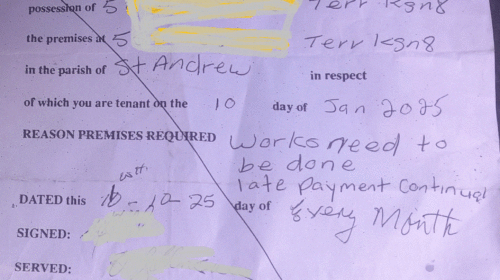Washington — Some of America’s most elite universities, including Stanford University and the Massachusetts Institute of Technology (MIT), are experimenting with free online courses that give thousands of motivated students around the world the opportunity to learn sophisticated skills and earn informal credentials.
Advances in video technology, social networks and collaboration software are enabling universities to offer these massive open online courses, or MOOCs, as a way of delivering education to a broad audience at little or no cost.
“This is open courseware plus the interactions around it. This is a very exciting approach,” said Richard Culatta, the U.S. Department of Education’s deputy director for educational technology.
Open courseware (OCW) — free online access to course materials — was introduced a decade ago by MIT, and institutions around the world have followed suit. Today, hundreds of colleges and universities offer free educational materials and interactive learning experiences. But last fall, Stanford and MIT took open learning to a new level.
At Stanford, two computer scientists taught a free online class called “Introduction to Artificial Intelligence.” More than 160,000 people from 190 countries enrolled, and student volunteers translated parts of the course into 44 languages. Ultimately, 23,000 people did all the course work, passed the exams and received a certificate of completion.
Two other free Stanford courses also drew thousands of far-flung enrollees. “There was a very large overseas audience for all the classes,” said Mehran Sahami, associate chair for education in Stanford’s computer science department. This spring, Stanford launched five more courses, with a total enrollment of nearly 335,000.
MIT, meanwhile, announced that it would offer specially designed, Internet-only courses through a new nonprofit organization called MITx. More than 120,000 people worldwide have signed up for the inaugural course, “Circuits and Electronics,” which runs through early June. “At least 20,000 of those students have been actively keeping up with the course’s lectures, exercises and online tests,” according to MITx.
The course is as rigorous as that taken by MIT students in the classroom (although the online courses do not earn credits at MIT). Since the course is a prototype, the certificate of completion will be free. In the future, students who receive passing grades may pay a fee for the MITx certificate, but course materials will be free.
The University of California at Berkeley and the University of Michigan also offer some free online courses; they are available, along with Stanford’s, on the website Coursera. Another pioneer in this area is Udacity, which is offering its own courses starting in mid-April. Both Udacity and Coursera were founded by computer scientists from Stanford.
THE LEARNING EXPERIENCE
“These are actual classes with a beginning and ending date,” and serious students keep up with the pace, Sahami said. Recorded lectures are divided into short segments that contain exercises and problems. “The lecture pauses, there’s a quiz and the students cannot continue with the video until they answer the questions,” he said.
Students also complete homework assignments (with deadlines) and can participate in online discussions with each other and with instructors.
“They’re really forced to think about the information actively, rather than just passively watching a video,” Sahami said.
For the Stanford courses, midterm and final exams are administered at testing centers in universities around the world. MITx is not requiring students to go to testing centers for the prototype “Circuits and Electronics” course, but in the future it plans to develop a more sophisticated system to validate students’ identities and curb plagiarism and cheating.
Whether certificates from MITx, Stanford, Udacity or other sources will impress a potential employer remains to be seen, Sahami said. “To what extent will people try to use the statements of accomplishment as a credential to show employers, and how do the employers weigh them? I think only time will tell.”
Digital certificates and badges that indicate competency in a subject or skill “are only as good as whoever’s issuing them,” Culatta said. “If it’s an organization or group that carries some weight, then these certificates will really mean something.”
But even without offering credentials, online courses are filling a need. Sahami recalled that when Stanford posted videos and other materials for 10 of its popular engineering courses on the Internet, “many students sent us emails thanking us for the materials. I taught the introductory programming class, and I had students from every continent except Antarctica send emails. There is clearly a demand for it and an appreciation. “
More information on MITx, Coursera and Udacity is available on those programs’ websites.
Also see “Teachers Worldwide Can Turn to Free, Open Content on Internet.”
Read more: http://iipdigital.usembassy.gov/st/english/article/2012/04/201204123772.html#ixzz1sD8fXNGc
Author Profile
- ... refers to representatives of entities such as embassies, entertainment industry, creative force whose submitted work gets published on this site. Views expressed here may not necessarily represent those of the owner of this site, but are being published in the interest of the wider public. Link me here
Latest entries
 AdvertorialFebruary 1, 2026Daily reads on www.antheamcgibbon.com as @ 1 February 2026
AdvertorialFebruary 1, 2026Daily reads on www.antheamcgibbon.com as @ 1 February 2026 AdvertorialJanuary 21, 2026Documents assistance
AdvertorialJanuary 21, 2026Documents assistance AdvertorialJanuary 1, 2026Daily reads on www.antheamcgibbon.com as @ 1 January 2026
AdvertorialJanuary 1, 2026Daily reads on www.antheamcgibbon.com as @ 1 January 2026 Raw and DirectDecember 21, 2025Use that rare energy in you
Raw and DirectDecember 21, 2025Use that rare energy in you















